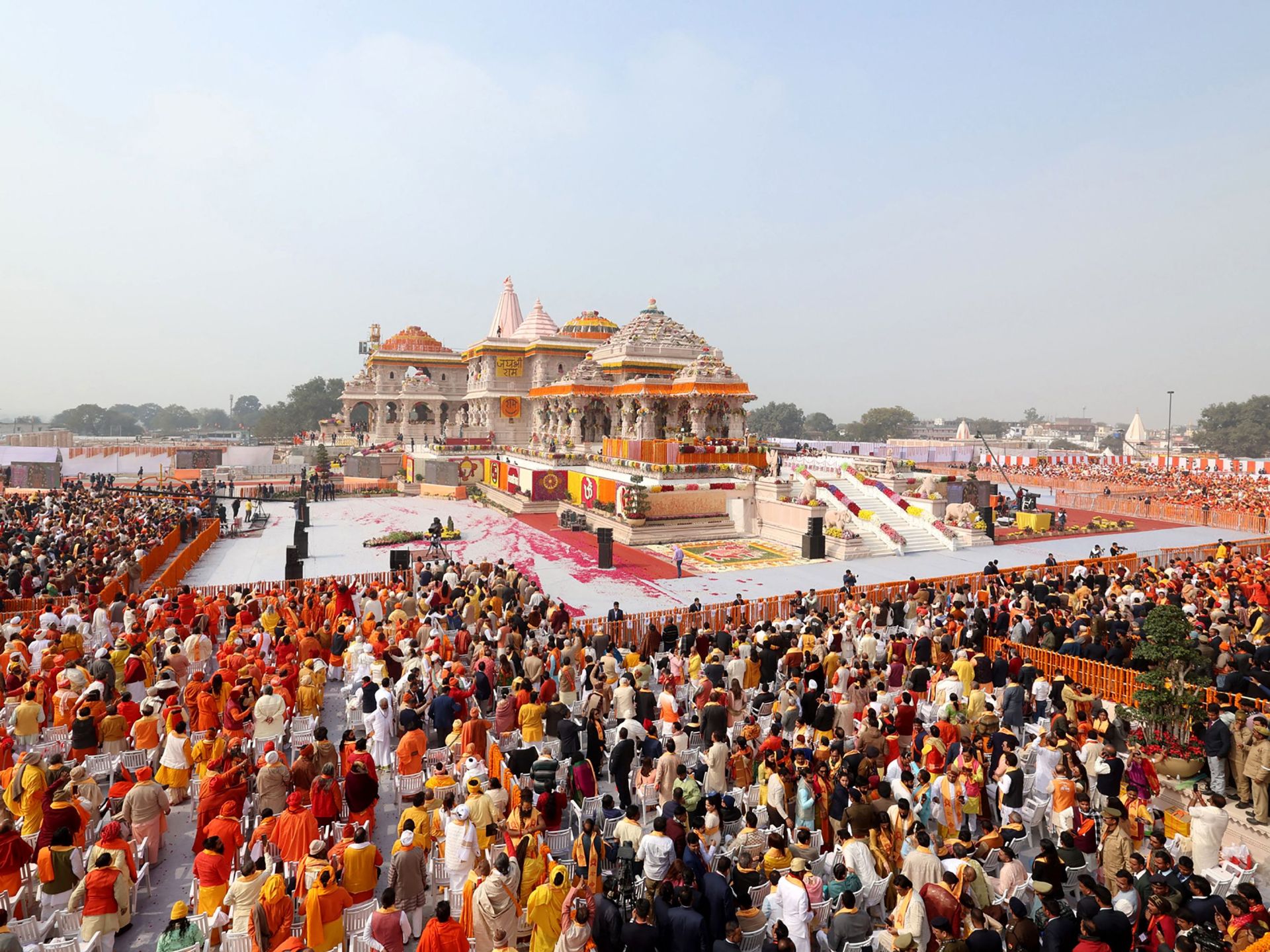The Ram Temple in Ayodhya, Uttar Pradesh, built on the ruins of a historic mosque (French)
Amnesty International called on the Indian authorities to stop the de facto policy of discrimination against Muslims, including the arbitrary and punitive demolition of their property.
Aakar Patel, Chairman of the Board of Amnesty International India, said that illegal actions taken against people suspected of violence, without notice or other due process, constitute a "major blow to the rule of law".
This came in response to news of the demolition targeting Muslim property, two days after sectarian violence incited by participants in a massive Hindu march in Mumbai, the financial capital of India.
Patel called on the Indian authorities to "immediately stop pursuing this policy that involves using demolition campaigns as a pretext to target Muslims, and to establish safeguards against forced evictions, as specified in international human rights standards."
The organization drew attention to the International Covenant on Economic, Social and Cultural Rights, to which India is a party, which prohibits forced evictions, requires providing adequate compensation to all those affected without discrimination, ensuring that victims receive effective remedies, and holding those responsible to account.
The organization urged the Indian authorities to bring those responsible for incitement to violence and sabotage to justice urgently through fair trials. She noted that it is the state's duty to protect all persons under its jurisdiction, including minorities.
On January 21, an argument occurred that led to violence when some Muslim residents of Mumbai, Maharashtra, stopped a group of Hindus carrying saffron flags and chanting the slogan, “Glory to God Ram.” Two days later, the state authorities demolished 15 shops, including those owned by street vendors. In the Muslim-majority area of Haideri Chowk on Mira Road.
Several incidents of communal violence were reported across the country following the inauguration of the Ram Temple in Ayodhya, Uttar Pradesh, which was built on the site of the Babri Masjid, a medieval mosque demolished by fanatical Hindus in 1992.
Local activists reported that no notifications were sent before the demolitions.
The Bombay High Court has previously ruled that providing necessary notice to street vendors must be the first step in evictions, and that physical eviction may only be used as a last resort.
Source: Amnesty International

